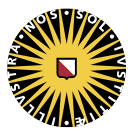Introduction
Utrecht University is a world-renowned public research university located in Utrecht, the Netherlands. It is one of the oldest universities in Europe with a history of more than 380 years. The university is well-known in Europe for its long academic tradition, high-quality education and strong scientific research strength.
Overview
Student and faculty size: In 2022, the school has a total of 37,675 students and 8,584 faculty, including 4,253 academic staff and 4,331 administrative staff.
Course settings: There are 45 bachelor's programs, 138 master's programs and 32 teacher training programs, of which 6 bachelor's and 89 master's programs are taught in English, and the courses cover almost all areas of knowledge.
History and establishment time
Utrecht University was founded on March 26, 1636. Its roots can be traced back to the famous Utrecht University founded in 1634. It was officially upgraded to a university in 2017.
School Strength
Faculty: It has many outstanding professors and researchers who provide high-quality teaching and guidance to students. In 2022, the school awarded more than 400 doctoral degrees and published 8,500 scientific articles.
Scientific Research Achievements: The school has carried out in-depth research in many fields and achieved a series of important scientific research results, making important contributions to promoting academic progress and social development.
Budget investment: The school budget for 2022 is 2.606 billion euros, of which the university itself is 1.067 billion euros and the Medical School of Utrecht University is 1.539 billion euros.
Nature of the institution
Public research university.
Educational philosophy
The school's purpose is to provide knowledge education in science and other fields, conduct research in science and various fields, provide services to society, emphasize the close integration of teaching and scientific research, focus on cultivating students' innovative and practical abilities, and strive to provide students with comprehensive education and training so that they can succeed in their future careers.
Key laboratories and disciplines
Copernicus Institute for Sustainable Development: Affiliated to the School of Earth Sciences, it includes four multidisciplinary research teams, mainly engaged in sustainable development research in the field of global energy and environment, and has participated in IPCC many times. Evaluation work, and maintain exchanges and cooperation with many internationally renowned research institutions.
Debye Nanoscience Institute: affiliated to the Department of Physics and Astronomy of the Faculty of Science, named after Dutch scientist and Nobel Prize winner Peter Debye, including six research teams, mainly engaged in cutting-edge research in the fields of catalysis, colloid science and nanophotonics.
Freudenthal Institute: affiliated to the Department of Mathematics of the Faculty of Science, named after Dutch mathematician and mathematics educator Freudenthal, is committed to integrating education and high-quality science and mathematics education in the physical and virtual environments of scientific teaching laboratories, and is an international pioneer in related fields.
Faculty
Utrecht University has a total of seven faculties, covering courses in all fields of knowledge. It is the university with the most comprehensive curriculum in the Netherlands, as follows:
Faculty of Earth Sciences: including the Department of Earth Sciences, the Department of Physical Geography, the Department of Innovation and Environmental and Energy Sciences, the Department of Human Geography and Urban Planning, etc., mainly offering courses in the fields of geophysics, geology, geochemistry, human geography, and sustainable development research in the energy environment.
School of Science: covers the Department of Biology, Department of Chemistry, Department of Information and Computer Science, Department of Mathematics, Department of Pharmaceutical Science, Department of Physics and Astronomy, etc., mainly offering courses in molecular cell biology, genetics, chemistry, mathematics and computer science, immunopharmacy, astronomy, meteorology, physics and oceanography, etc.
School of Medicine: mainly offers courses in the fields of medicine and medical biology, and research topics include neuropeptides, brain function and behavior, immunology and infection, molecular cell biology and membranes, DNA, developmental biology and genetic disorders, functional morphology and biophysical diagnostics, as well as biology, epidemiology and cancer treatment, etc.
School of Veterinary Medicine: mainly offers courses in the field of veterinary medicine.
School of Social Sciences: mainly offers courses in the fields of general social sciences, social psychology, cultural anthropology, and educational sciences, and research topics mainly include perception and cognition research, developing countries research, citizens' rights and obligations research, institutions and policies research, etc.
School of Law, Economics and Management: includes the Department of Law, the Department of Economics, and the Department of Management, and mainly offers courses in the fields of Dutch law, notarial law, international law, management law, public administration, business administration, and macroeconomics, etc.
Faculty of Humanities: Covering the Department of Arts and Languages, the Department of Philosophy and Religious Studies, and the Department of Theology, the school mainly offers courses in the fields of liberal arts, general linguistics, general and comparative literature, phonetics, Dutch, French, Italian and other languages and cultures, history, art history, music studies, drama studies, and medieval studies.
Ranking
110th in the 2022 QS World University Rankings.
52nd in the 2020 Soft Science World University Academic Rankings.
91-100th in the 2020 Times Higher Education World University Reputation Rankings.
Expenses
Tuition fees vary depending on the major and degree level. For example, in the 2024-2025 academic year, the tuition fees for undergraduate courses are approximately between 11,000 euros and 15,000 euros, and the tuition fees for master's courses are approximately between 15,000 euros and 25,000 euros.
Campus
Main campus: Located in the Uithof district east of Utrecht, most of the colleges and the central administrative center are located here. The campus has complete facilities, including modern teaching buildings, libraries, laboratories, student dormitories, restaurants, sports facilities, etc.
City Center Campus: The Faculty of Law, the Faculty of Economics and the subordinate UCU are located in the city of Utrecht. In addition, the main library is also located in the city center.
-
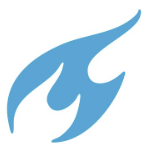
Delft University of Technology
-
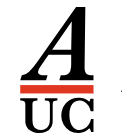
Amsterdam University College
-

University of Amsterdam
-

TIAS School for Business and Society
-
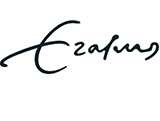
Erasmus University Rotterdam
-
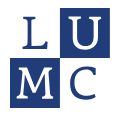
Leiden University Medical Center
-
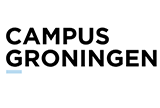
University Medical Center Groningen
-
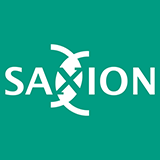
Saxion University of Applied Sciences
-
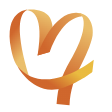
Academic Hospital Maastricht
-

Wageningen University and Research Centre
-

Mesoamerican University
-

Istmo University
-

Mariano Galvez University of Guatemala
-

Regional University of Guatemala
-

Galileo University
-

Francisco Marroquín University
-

Rafael Landívar University
-

University of the Valley of Guatemala
-

University of San Carlos of Guatemala
-

Technological Institute of Tlaxcala Plateau
-

Golfo University
-

Technological University of South Sonora
-

Technological University of Huejotzingo
-

Tizimín Institute of Technology
-

Chilpancingo Institute of Technology

